Nereus Program Leadership

Yoshi Ota, PhD, Anthropology
DIRECTOR (POLICY)
UW
Yoshitaka Ota is Director (Policy) of the NF-UBC Nereus Program. He is a Research Assistant Professor in the School of Marine and Environmental Affairs at the University of Washington. His main research is anthropology of fishing, assessing current global outlook of indigenous fishing and coastal food security. He also works on ocean governance and policy, marine spatial planning and knowledge communication.

William Cheung, PhD, Ecology
DIRECTOR (SCIENCE)
UBC
William Cheung is Director (Science) of the NF-UBC Nereus Program and the Principal Investigator of the UBC Nereus Research group since 2014. He is also an Associate Professor at the University of British Columbia. His main research area is on assessing impacts of fishing and climate change on marine ecosystems and their goods and services, and studying ways to reconcile trade-offs in their management.
Nereus Fellows

Fernando Gonzalez Taboada, PhD
Princeton University
I am biological oceanographer with a strong focus on the analysis of global change impacts using satellite oceanography and Bayesian analysis. My main interest lies at the study of physical-biological coupling on planktonic systems and how these effects propagate up through marine food webs. I rely primarily on statistical and mechanistic modeling of satellite and population data to pursue these topics, combining techniques from spatial statistics, time series modeling and population ecology.

Joey Bernhardt, PhD, Zoology
UBC
Joey’s research seeks to understand how populations and communities adapt and persist in changing environments. She integrates across levels of biological organization to quantify how flows of energy and materials at the level of the individual cascade up to shape populations over environmental gradients. By combing theory, experiments and synthesis, she aims to understand the metabolic underpinnings of biodiversity and the connections between biodiversity and human well-being. Her work unifies perspectives on energy flow with population and community ecology to advance a more coherent and mechanistic science of global change.
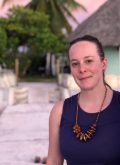
Brooke Campbell, MSc, Resource Management and Environmental Studies
University of Wollongong
Brooke Campbell is a PhD student at the Australian National Centre for Ocean Resources and Security (ANCORS). She has a background in ecology and natural resource planning, management, and policy and is broadly interested in marine resource governance issues surrounding fisheries for food security and livelihoods in islands and remote rural environments. Her PhD research investigates the growing impact of information and communication technologies on the fisheries governance strategies of Pacific Island Countries in the Western and Central Pacific region.

Kisei Tanaka, PhD
University of Maine
Through multidisciplinary collaboration with government agencies and universities, Kisei focuses on modeling and quantitative methods that can facilitate adaptive ecosystem-based management framework in commercial fisheries under climate change. Kisei’s broad scholastic interests include fisheries ecology, population dynamics, and fisheries stock assessments and management. He is also interested in evaluating environmental impacts on spatiotemporal changes in fish distribution, analyzing the effectiveness of fisheries-monitoring programs, and studying coupled natural and human systems in fisheries.

Solène Guggisberg, PhD, International Law
Utrecht University
Solène Guggisberg specializes in the law of the sea, environmental law, and international dispute settlement. Her current research interests lie in fisheries governance, climate change, and sustainable development. She previously worked for United Nations bodies as well as international governmental and nongovernmental organizations involved in fisheries and maritime affairs providing legal advice and opinions on international and EU fisheries law, maritime delimitation, and sustainable development issues.

Alina Kaiser, BS, Public Relations & Sustainability
University of Washington
Alina is a master’s degree candidate at the University of Washington pursuing a degree in Communication. With a background in environmental communication, she has been working with a team designing effective and engaging communication strategies to develop an environmental campaign focused on ocean health, human impact and social equity. Her research focuses on strategic environmental communication and community engagement.
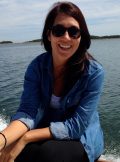
Katy Seto, PHD, Environmental Science, Policy, and Management
University of Wollongong
Katy Seto’s research centers on coupled human and natural systems dynamics in marine and coastal systems. Her primary areas of focus are 1) the contribution of marine resources to food and livelihood security, 2) governing marine and coastal systems for resource equity and sustainability, and 2) maritime security and globalization in a context of rapid global change. Her work investigates the equity, sustainability, and governance of marine and coastal systems, and the reciprocal relationship they have with human wellbeing and conflict.
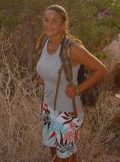
Elena Finkbeiner, PHD, Biology
Arizona State University
Elena Finkbeiner’s research is on how we can increase both social wellbeing and ecological sustainability in the face of increasing uncertainties and threats that global fisheries face. She uses small-scale fisheries as her study system, given their importance for global livelihood and food security, culture, and ecological sustainability. Elena draws from ecology, political science, anthropology, and economics, and uses a mix of qualitative and quantitative methods, including ethnographic techniques, analysis of fisheries catch data, and behavioral economic experiments.
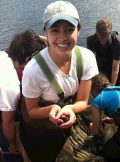
Julia Mason, BA, Environmental Science and Public Policy
Stanford University
Julia Mason is a PhD candidate at Stanford University’s Hopkins Marine Station. Her research is on the effects of climate variability and management on the social-ecological resilience of fisheries in California and Peru. She is interested in dynamic management approaches that protect highly migratory species and fisheries livelihoods in a variable, changing climate.

Tiff-Annie Kenny, PhD, Biology
University of Ottawa
Tiff-Annie is interested in human dependency on biodiversity for nutrition and food security. Her research employs participatory and systems-based methodologies to examine the links between marine environments and human health, with a particular focus on the ecological, environmental, and economic dimensions of Indigenous Peoples food systems.

Oai Li Chen, PhD, Aquaculture and Fisheries Economics
UBC
Oai Li Chen’s research focuses on drivers of change in the seafood markets and their implications for fisheries sustainability and the well being of fish producers and consumers, at the national and global levels. She is developing an integrated assessment model that links economic and biophysical components to explore co-benefits and trade-offs in global marine biodiversity, food provisioning and economic benefits under different development pathways for the future oceans.
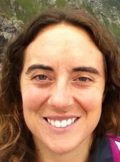
Becca Selden, PhD, Ecology, Evolution and Marine Biology
Rutgers University
Becca Selden is a broadly trained marine ecologist interested in examining how climate change is impacting marine communities and the fishers that depend on them. She is currently working as a NSF OCE Post-doctoral Research Fellow at Rutgers University investigating how climate change is impacting marine predator prey interactions. For Nereus, she will examine how shifting species distributions are creating no-analog communities within coastal marine systems, and how such changes in ecological community structure might also impact fishing communities.
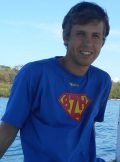
Hubert Du Pontavice, MSC, Fisheries and Aquatic Sciences
Agrocampus Ouest
Hubert Du Pontavice is a Ph.D student at Agrocampus Ouest (France) and at the University of British Columbia. He has a background in fisheries and aquatic sciences with a specialization in dynamics of aquatic ecosystems and resources. Hubert’s research focuses on the functioning of food webs induced by fisheries and climate change. The objective of the project is to analyze and model the impacts of changes in species assemblages on the global parameters of the functioning of marine food webs.

Robert Blasiak, PhD, International cooperation
Stockholm
Robert Blasiak is a post-doctoral researcher at the Stockholm Resilience Centre and a visiting researcher at the University of Tokyo. He holds a PhD from the University of Tokyo, where he focused on how conflict and cooperation among states can impact the conservation and sustainable use of ocean resources. His current research focuses not only on how states can promote sustainable ocean management, but also the crucial role that can be played by transnational corporations, intergovernmental bodies and non-governmental organizations.
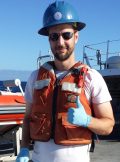
Colin Thackray, PhD, Atmospheric Chemistry
Harvard University
Colin Thackray is a postdoctoral fellow at Harvard University, with a background in numerical modeling of atmospheric physics and chemistry. He is developing a modeling framework to trace anthropogenic emissions (to the atmosphere and oceans) of toxicants such as mercury through the physical environment into marine food webs to assess the toxicants’ effects on fisheries health and sustainability. This framework will also help project future fisheries sustainability under changing fishing/climate/emissions.
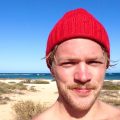
Tyler Eddy, PhD, Marine Biology
UBC
Tyler Eddy is a research fellow working on the One Ocean Project, which aims to integrate ecological and societal information sources to understand human impacts on the oceans from pre-industrial times to the present day, and to make future projections under different climate change and fishing scenarios. The One Ocean Project will quantify the capacity of, and the human demand on, the oceans throughout time, and will develop a range of indicators to test ecological hypotheses.
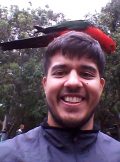
Gerald Singh, PHD, RESOURCE MANAGEMENT AND ENVIRONMENTAL STUDIES
UBC
Gerald Singh is a Nereus Fellow working with Yoshitaka Ota and Andres Cisneros-Montemayor and collaborating with the United Nations Development Programme. Gerald is characterizing the contribution of a sustainable ocean to achieving broad sustainable development goals. Using the United Nations Sustainable Development Goals (SDGs) as a framework, Gerald is researching how the SDGs are dependent on achieving sustainable use and management of the ocean.

Jessica Spijkers, MSC, Social-Ecological Resilience for Sustainable Development
Stockholm
Jessica Spijkers is a PhD student at the Stockholm Resilience Centre (Sweden) and the ARC Centre of Excellence for Coral Reef Studies (Australia). In her PhD, she seeks to understand where, why and with what social-ecological consequences international conflicts over shared fish stocks occur. She aims to develop scenarios for future conflict under climate scenarios to develop recommendations on how to cope with and adapt to change, how to reduce the risk of conflict, and increase the prospects for sustainable, equitable use of shared marine resources.
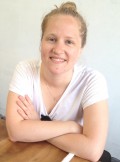
Matilda Petersson, MSC, SOCIAL-ECOLOGICAL RESILIENCE FOR SUSTAINABLE DEVEOPMENT
Stockholm
Matilda Petersson has a background in Political Science with a specialization in Environmental Politics. Her PhD will investigate whether and under which conditions inclusive governance systems can contribute to effective governance of global marine resources. In her previous work, Matilda has explored the diversity and participatory patterns over time among non-state actors in Regional Fisheries Management Organizations (RFMOs).
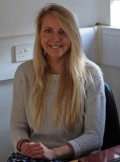
Rachel Seary, MSc, Ecosystem-based Management of Marine Systems
Cambridge/UNEP-WCMC
Rachel Seary is conducting her PhD research at the University of Cambridge in cooperation with the United Nations Environment Programme World Conservation Monitoring Centre (UNEP-WCMC). Rachel’s research background is in coastal habitats and artisanal fisheries and she has recently completed an MSc in Ecosystem-based Management of Marine Systems at the University of St Andrews. As a member of the Nereus Program, Rachel will be working on understanding the role of mangroves in supporting artisanal fisheries and the potential impacts of mangrove loss on global food security and community livelihoods.
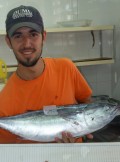
Guillermo Ortuño Crespo, MSc, Ecosystem-based Management of Marine Systems
Duke
Guillermo Ortuño Crespo is a Ph.D. student at Duke University’s Marine Geospatial Ecology Lab. He recently obtained a M.Sc. degree in Ecosystem-based Management of Marine Systems from the University of St Andrews, where his research was focused on the conservation and management of Thunnus thynnus and the use of genetic tools in fisheries management. His main research interests are in the spatial ecology and conservation of highly migratory, straddling species, which raise fundamental questions about their trans-boundary management, particularly in areas beyond national jurisdiction.
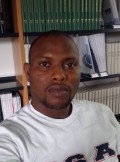
Muhammed Oyinlola, MSC, International Studies in Aquatic Tropical Ecology
UBC
Muhammed Oyinlola is presently working on his Ph.D at the University of British Columbia with the Changing Ocean Research Unit and the Nereus Program of the Institute for the Oceans and Fisheries. His studies focus on the implications of climate change and ocean acidification on global seafood production from aquaculture.
Principal Investigators

Jack Kittinger, PhD, Geography
Arizona State University
John N. (“Jack”) Kittinger is the senior director of the Global Fisheries and Aquaculture Program in Conservation International’s Center for Oceans and a Professor of Practice in Arizona State University’s Center for Biodiversity Outcomes. Under his leadership, CI works to protect biodiversity and improve the wellbeing of ocean dependent communities by implementing sustainable fisheries and aquaculture solutions built on partnerships and investments from ocean to plate.

Daniel Dunn, PhD, Marine Science & Conservation
Duke University
2011-2014 Junior Research Fellow (Duke)
2014-2017 Senior Research Fellow (Duke)
Daniel Dunn is a research scientist with the Marine Geospatial Ecology Lab at Duke University where he focuses on the conservation of marine biodiversity in areas beyond national jurisdiction, and dynamic management of marine resources. This work is driven by an interest in conservation biology grounded in pelagic ecology, biogeography and macroecology. To more directly address these issues at appropriate scales and over their full extent, Dunn works to bring science to bear on marine policy in areas beyond national jurisdiction.
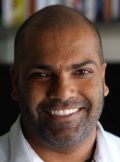
Hanson Hosein, MS, Journalism
University of Washington
Hanson Hosein is a pioneer of creative entrepreneurship through communication technologies. As Director of the Communication Leadership program at the University of Washington since 2007, he has led a powerful graduate learning experience for professionals from around the planet. Hanson is a former NBC News war correspondent, backpack journalist and investigative producer, with Emmy and Overseas Press Club awards.
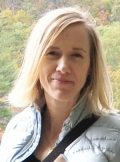
Elsie Sunderland, PHD, Environmental Toxicology
Harvard University
Elsie Sunderland is an Associate Professor of Environmental Science and Engineering in the Department of Environmental Health at Harvard. Her research group studies the biogeochemistry of global contaminants. Her research includes developing models at a variety of scales, ranging from ecosystems to global applications, to help characterize the impacts of past and future changes in climate and environmental releases of contaminants on human and ecological health.
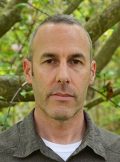
Andre Boustany, PhD, Zoology
2011-2013 Senior Research Fellow (Duke)
Monterey Bay Aquarium
Andre Boustany is a research scientist at Duke University where he studies pelagic fish and fisheries with a focus on reducing bycatch and improving fishing efficiency. In addition to his research, Boustany also teaches classes in marine conservation and fisheries ecology and serves as a member of the Atlantic Highly Migratory Species Advisory Panel and the US ICCAT Advisory Committee, advising NOAA on domestic and international management of pelagic fishes in the Atlantic Ocean.

Ryan Rykaczewski, PhD, Biological Oceanography
2011-2012 Senior Research Fellow (Princeton)
University of South Carolina
Ryan Rykaczewski, assistant professor at the University of South Carolina’s Marine Science Program and Biological Sciences program, focuses his research on the responses of ecosystem and fisheries production to past and future climate variability and climate change. This research involves consideration of theory, observations, and models. He holds a PhD from the Scripps Institution of Oceanography at the University of California, San Diego.
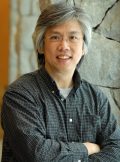
Laurie Chan, PHD, Diet and Health
University of Ottawa
Laurie Chan is a Professor and holder of the Canada Research Chair in Toxicology and Environmental Health at the University of Ottawa. His research interests focus on toxicology, environmental health, nutrition and the environment of indigenous peoples; chemical, biological and biochemical processes involved in the metabolism and toxicity of environmental and nutritional contaminants; effects of trace element deficiency; effects of contaminants in the ecosystem; and risk assessment.
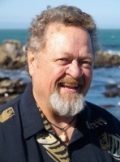
Larry Crowder, PHD, Zoology
Stanford University
Larry Crowder is the Center for Ocean Solutions Science Director and Professor of Biology at Stanford University. His research centers on predation and food web interactions, mechanisms underlying recruitment variation in fishes, population and food web modeling in conservation biology, and interdisciplinary approaches to marine conservation. He has studied food web processes in both freshwater and marine ecosystems, and has used observational, experimental, and modeling approaches to understand these interactions in an effort to improve management.

Didier Gascuel, PHD, Ecology
Agrocampus Ouest
Didier Gascuel is a professor at Agrocampus Ouest and head of the Fisheries and Aquatic Sciences Centre. His current research focuses on the development of trophic-level-based ecosystem models and the implementation of ecosystem approach to fisheries management. He has been especially involved in programs dealing with the assessment of ecosystem impacts of fishing in Western African countries and in European seas. He notably developed the ECOTROPH ecosystem model and also worked on assessing the efficiency of marine protected areas.

Thomas Froelicher, PhD, Climate & Environmental Physics
2012-2013 Senior Research Fellow (Princeton)
University of Bern
Thomas Froelicher’s research involves consideration of models, theory, and observations. He is interested in the present and future climate and carbon cycle interaction from a regional to global scale. His research focuses on the ocean components of the Earth System and its role in nutrient and carbon cycling and ultimately climate. He is also interested in exploring the responses of ecosystems and fisheries production to past and future climate variability and change. Froelicher was a senior scientist at ETH Zurich and is now working as an Assistant Professor at the University of Bern .
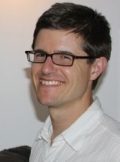
Malin Pinsky, PhD, Biology
Rutgers University
Malin Pinsky is an ecologist with a strong interest in marine communities and molecular tools. A key goal of his research is to aid in the conservation of marine ecosystems, both by pushing the boundaries of research and through training highly skilled scientists and communicators. His projects have included studies examining adaptation to climate change in temperate marine fish and fisheries, larval dispersal in coral reef fish to inform marine reserve design, and seal population dynamics in response to climate change and hunting.
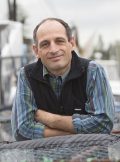
Quentin Hanich, PhD, Fisheries Governance
University of Wollongong
Quentin Hanich leads the Fisheries Governance Research Program at the Australian National Centre for Ocean Resources and Security, University of Wollongong, and consults for international organisations and national governments on fisheries governance and marine conservation in the Pacific islands region. He has extensive project management experience in fisheries governance, marine conservation, and fisheries management and development.
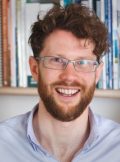
Chris McOwen, PhD, Marine Biology
2011-2014 Senior Research Fellow
UNEP-WCMC
Chris McOwen is a postdoctoral scientist working with the Marine team together with staff in the Department of Geography, University of Cambridge. He researchers a variety of aspects relating to marine capture fisheries. Specifically, Chris is exploring the drivers of fisheries production, considering a range of ecological, oceanographic and socioeconomic processes, so that future fisheries production can be predicted and marine ecosystems exploited sustainably.
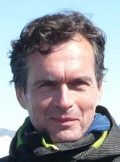
Alex Oude Elferink, PhD, Law
Utrecht University
Alex Oude Elferink is the Director of the Netherlands Institute for the Law of the Sea. Oude Elferink is an expert on the law of the sea and the polar regions, the outer limits and delimitation of maritime zones, dispute settlement and the regime of marine areas beyond national jurisdiction.

Carl Folke, PhD, Ecological Economics/Natural Resource Management
Stockholm University
Carl Folke is Science Director of the Stockholm Resilience Centre and the Director of the Beijer Institute of Ecological Economics of the Royal Swedish Academy of Sciences, one of the collaborating partners of the Stockholm Resilience Centre. Folke has extensive experience in transdisciplinary collaboration between natural and social scientists, and has worked with ecosystem dynamics and services as well as the social and economic dimension of ecosystem management and proactive measures to manage resilience.
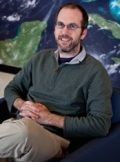
Charles Stock, PhD, Civil, Environmental and Ocean Engineering
NOAA
Charles Stock is a Research Oceanographer at the NOAA/Geophysical Fluid Dynamics Laboratory. His research interests are in marine ecosystem dynamics and physical-biological interactions over a broad range of space and time scales. The objective of his work is the production of quantitative predictions and projections of interactions between climate and marine ecosystems on time-scales ranging from seasons to multiple decades.
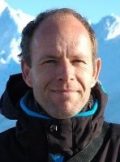
Erik Molenaar, PhD, Law
Utrecht University
Erik Molenaar is Deputy Director of the Netherlands Institute for the Law of the Sea (NILOS) at Utrecht University, with research interests in international fisheries law and the international law relating to the Antarctic and Arctic. Since late 2013 his research has a specific focus on participation, allocation and the ecosystem approach to polar fisheries.

Henrik Österblom, PhD, Marine Ecology
Stockholm University
Henrik Österblom is Deputy Science Director at Stockholm Resilience Centre. He holds a position as senior lecturer in environmental sciences with a particular focus on ecosystem-based management of the Baltic Sea. His primary research interests are 1) Social-ecological dynamics of the Baltic Sea, 2) International marine governance and 3) Seabirds and ecosystem change.
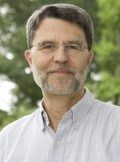
Jorge Sarmiento, PhD, Geology
Princeton University
Jorge Sarmiento is the George J. Magee Professor of Geoscience and Geological Engineering, Professor of Geosciences at Princeton University. He has published widely on the oceanic cycles of climatically important chemicals such as carbon dioxide, on the use of chemical tracers to study ocean circulation, and on the impact of climate change on ocean biogeochemistry.
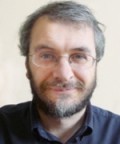
Mike Bithell, PhD, Astrophysics
University of Cambridge
Mike Bithell is an Assistant Director of Research in Computing at the Department of Geography in the University of Cambridge. His research interests lie in numerical modelling of spatially distributed systems, including fluid flow, atmospheric physics, climate and its interaction with ecosystems, changes in land use and socio-economic processes.
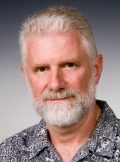
Patrick Halpin, PhD, Environmental Science
Duke University
Patrick Halpin is an Associate Professor of Marine Geospatial Ecology and Director of the Geospatial Analysis Program at the Nicholas School of the Environment, Duke University Marine Lab. Halpin’s research focuses on marine geospatial analysis, ecological applications of geographic information systems and remote sensing; and marine conservation and ecosystem-based management. Prof. Halpin leads the Marine Geospatial Ecology Lab at Duke University and sits on a number of international scientific and conservation program steering committees.

Tom Spencer, PhD, Geography
University of Cambridge
Tom Spencer is Reader in Coastal Ecology and Geomorphology and the Director of Cambridge Coastal Research Unit at the University of Cambridge. His research focuses on physical geography at the interface between geomorphology and the geological and biological sciences, with particular reference to coral reefs and associated ecosystems (seagrass, mangroves) and coastal geomorphology.
Program Office
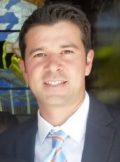
Andrés Cisneros-Montemayor, PhD, Fisheries Economics
PROGRAM MANAGER/RESEARCH ASSOCIATE
2014-2016 Senior Research Fellow (UBC)
Andrés Cisneros-Montemayor is a resource economist specializing in applied fisheries management and ecosystem services. His research touches on optimal economic policies, co-management, transboundary fisheries, ecotourism, and small-scale and Indigenous fisheries, always with a view to achieving sustainable resource use in a changing world.

Tomoka Sweet, Program Administrator
UBC
Tomoka Sweet received a Bachelor of Law degree from Sophia University in Tokyo. After graduating, she was hired by Reuters as a Product Manager for Reuters News and Financial information products. She later joined Weber Shandwick as a PR Consultant, leading media & communication projects for Japanese and international companies. Since moving to Canada, she has held financial, administration and project management positions.

Vicky Lam, PhD, Fisheries Economics
PROGRAM MANAGER/RESEARCH ASSOCIATE
Vicky Lam is a Fisheries Economist and is currently working on a global catch reconstruction project. She completed her PhD under the supervision of Rashid Sumaila in Resources Management and Environmental Studies at the Fisheries Centre, UBC in 2013. Lam’s research interests focus on understanding the effect of climate change on the economics of major commercial marine fisheries at the global scale.

Victoria Pinheiro, Strategic Communications Lead
UW
Tori has experience in digital and network communication and a strong background in the marine and aquatic sciences. Prior to joining Nereus, she did strategic communications and graphic design for three different environmental institutes (Rubenstein Ecosystem Science Laboratory, Climate Impacts Group and EarthLab) while pursuing graduate degrees in fisheries ecology and communications in digital media. Tori is passionate about storytelling; strategic communication style emphasizes curated communities, far-reaching networking, and the ability to craft organizational identity online, in print and in person.

Patrick Boutet, Assistant Program Manager
UBC
After receiving a diploma in Information Technology and Systems Management, Patrick then went on to complete a Bachelor of Science in Biological Sciences and Computing Science at the University of Alberta. He has worked in the industry as a Sys Admin and Developer, then in research as a Bioinformatician and Molecular Biologist. Now alongside the Nereus Program, he also consults as a Technologist and Full Stack Developer, a volunteer Bioinformatician, and an IT and Data support Analyst.

Braela Kwan, Communications Assistant
UBC
Braela is a BSc candidate at the University of British Columbia studying environmental science. Working as a work-learn student with the Nereus Program, she has received the opportunity to learn more about her keen interests in oceanography, marine conservation, and the integration of the physical and social sciences of the environment.
Advisory Panel
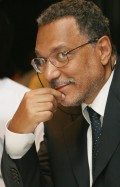
Daniel Pauly, PhD, Fisheries Biology
UBC
Daniel Pauly is the Chair of the Nereus Steering Committee and a member of the Advisory Board. He is Professor at the University of British Columbia and the Principal Investigator of the Sea Around Us Program. His research focuses on the global impact of fishing on the world’s oceans and he has developed the concept of shifting baseline and fishing down marine food webs.
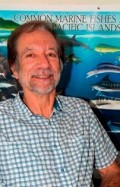
Jeffrey Polovina, PhD, Statistics
NOAA
Research interests include investigations of: i) migrations and habitats of large pelagic animals including turtles, tunas, whale sharks, and whales with satellite telemetry and remotely-sensed oceanographic data, ii) the impacts of climate variation and climate change on marine fisheries and ecosystems, and iii) advancing our understanding of ecosystem dynamics with satellite remote sensing data, fisheries observer and logbook data, and ecosystem and climate models.

Philippe Cury, PhD, Biomathematics
University of Paris VII-Jussieu
Philippe Cury is senior scientist at IRD (Institut de Recherche pour le Développement). He is the Director of the CRH (Centre de Recherche Halieutique Méditerranéenne et Tropicale) based in Sète France, and of the UMR-EME 212 IRD-Ifremer and University Montpellier 2. He is the scientific coordinator of the Eur-Oceans Consortium that leads research on building scenarios for marine ecosystems at the European level.
Alumni

Daniel Dunn, PhD, Marine Science & Conservation
Duke University
2011-2014 Junior Research Fellow (Duke)
2014-2017 Senior Research Fellow (Duke)
Daniel Dunn is a research scientist with the Marine Geospatial Ecology Lab at Duke University where he focuses on the conservation of marine biodiversity in areas beyond national jurisdiction, and dynamic management of marine resources. This work is driven by an interest in conservation biology grounded in pelagic ecology, biogeography and macroecology. To more directly address these issues at appropriate scales and over their full extent, Dunn works to bring science to bear on marine policy in areas beyond national jurisdiction.

Andre Boustany, PhD, Zoology
2011-2013 Senior Research Fellow (Duke)
Monterey Bay Aquarium
Andre Boustany is a research scientist at Duke University where he studies pelagic fish and fisheries with a focus on reducing bycatch and improving fishing efficiency. In addition to his research, Boustany also teaches classes in marine conservation and fisheries ecology and serves as a member of the Atlantic Highly Migratory Species Advisory Panel and the US ICCAT Advisory Committee, advising NOAA on domestic and international management of pelagic fishes in the Atlantic Ocean.

Ryan Rykaczewski, PhD, Biological Oceanography
2011-2012 Senior Research Fellow (Princeton)
University of South Carolina
Ryan Rykaczewski, assistant professor at the University of South Carolina’s Marine Science Program and Biological Sciences program, focuses his research on the responses of ecosystem and fisheries production to past and future climate variability and climate change. This research involves consideration of theory, observations, and models. He holds a PhD from the Scripps Institution of Oceanography at the University of California, San Diego.

Thomas Froelicher, PhD, Climate & Environmental Physics
2012-2013 Senior Research Fellow (Princeton)
University of Bern
Thomas Froelicher’s research involves consideration of models, theory, and observations. He is interested in the present and future climate and carbon cycle interaction from a regional to global scale. His research focuses on the ocean components of the Earth System and its role in nutrient and carbon cycling and ultimately climate. He is also interested in exploring the responses of ecosystems and fisheries production to past and future climate variability and change. Froelicher was a senior scientist at ETH Zurich and is now working as an Assistant Professor at the University of Bern .

Andrés Cisneros-Montemayor, PhD, Fisheries Economics
PROGRAM MANAGER/RESEARCH ASSOCIATE
2014-2016 Senior Research Fellow (UBC)
Andrés Cisneros-Montemayor is a resource economist specializing in applied fisheries management and ecosystem services. His research touches on optimal economic policies, co-management, transboundary fisheries, ecotourism, and small-scale and Indigenous fisheries, always with a view to achieving sustainable resource use in a changing world.
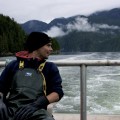
Wilf Swartz, PhD, Fisheries Economics
2012-2014 Senior Research Fellow (UBC)
While most of his past work focused on examining global seafood consumption in the context of fleet expansion and international governance of fisheries subsidies, Wilf Swartz now focuses primarily on seafood supply chain management. Specifically, his current research interests include corporate social responsibility (CSR) policies in the seafood industry, sustainability standards in aquaculture, and modeling of price-setting mechanisms under perishability constraints (e.g. the fresh fish market in Japan).
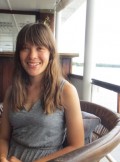
Natasha Henschke, PhD, Biological Oceanography
Princeton
Natasha Henschke’s background is in biological oceanography, with her research focusing on how gelatinous zooplankton communities respond to changing oceanographic conditions. There is concern that as a result of anthropogenic factors our oceans are shifting from a fish-based to a jellyfish-based ecosystem, however recent reviews have failed to reach a consensus on whether gelatinous zooplankton abundances have been increasing worldwide. In her current work at Nereus she aims to investigate this issue by using earth system models developed at the NOAA Geophysical Fluid Dynamics Laboratory to examine the distribution and abundance of future gelatinous zooplankton populations under different climate and fishing scenarios.

Colleen Petrik, PhD, Biological Oceanography
Princeton
2015-2017 Research Fellow (Princeton)
Colleen Petrik’s background is in biological oceanography and ecology, quantitatively rooted in mathematics and physics. Petrik’s research focuses on understanding how the physical environment mediates the ecology of zooplankton and commercially harvested fish and invertebrate species and the implications of climate variability and climate change on these relationships. With the Nereus Project Petrik will be studying the effects of behavior and composition of crustacean zooplankton, the addition of fish early life stages, and dynamic coupling between zooplankton and fishes on the future state of global fisheries.

Chris McOwen, PhD, Marine Biology
2011-2014 Senior Research Fellow
UNEP-WCMC
Chris McOwen is a postdoctoral scientist working with the Marine team together with staff in the Department of Geography, University of Cambridge. He researchers a variety of aspects relating to marine capture fisheries. Specifically, Chris is exploring the drivers of fisheries production, considering a range of ecological, oceanographic and socioeconomic processes, so that future fisheries production can be predicted and marine ecosystems exploited sustainably.
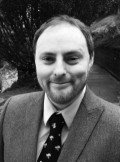
Richard Caddell, PhD, International Law
Utrecht
2014-2017 Research Fellow (Utrecht)
Richard Caddell specialises in the Law of the Sea and International Environmental Law, with particular expertise in wildlife management, the conservation of marine biodiversity and Polar law. He has an active interest in the regulation of whaling and marine mammal conservation, fisheries and Arctic issues, as well as human rights concerns. Caddell has advised numerous intergovernmental organisations, national governments and nongovernmental organisations on aspects of international and EU environmental law, the coordination of environmental treaties and the management of the Arctic region.

Audrey Valls, PhD, Zoology
2011-2014 Junior Research Fellow (UBC)
Postdoctoral Fellow, French National Centre for Scientific Research (CNRS)
Audrey Valls’ doctoral research explored methods for understanding, modeling and predicting feeding relationships between marine species. She proposed a novel index, using a mathematical model to represent food webs and identify ecologically important species. She also looked at how to use knowledge in fish feeding behavior to predict fish diet composition. Her research highlighted the usefulness of digital and open-access information repositories in marine ecology and fisheries science. Audrey is now working on coupled human-nature systems models at the Centre for Biodiversity Theory and Modelling.

James Watson, PhD, Marine Sciences
2012-2013 Senior Research Fellow (Princeton)
Researcher, Stockholm University
James Watson’s research aims to improve governance of marine systems and mitigate the impact of these disturbances. His work focuses on understanding crucial feedbacks between physical, ecological and social processes.
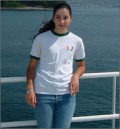
Kelly Kearney, PhD, Geosciences
2011-2014 Junior Research Fellow (Princeton)
Research Scientist, University of Washington-Joint Institute for the Study of the Atmosphere and Ocean (JISAO)/ NOAA NMFS Alaska Fisheries Science Center
Kelly Kearney is a marine scientist whose research focuses on marine (and occasionally coastal) ecosystem dynamics. Specifically, Kearney’s research is focused on developing modeling techniques that bridge the gap between traditional lower trophic level biogeochemical models and upper trophic level fisheries and ecosystem models.

Marc Metian, PhD, Oceanography & Marine Environment
2011-2013 Senior Research Fellow (Stockholm)
Research Scientist, International Atomic Energy Agency
Marc Metian has a keen interest in aquaculture globally and future challenges associated with its development, particularly the debate about “competition between feed and food resources”. More specifically, he is looking at links between sustainable use of resources, food security and governance, particularly in light of projected substantial increased demand for seafood due to both population growth and per capita consumption.

Miranda Jones, PhD, Fisheries
2013-2014 Senior Research Fellow (UNEP-WCMC)
Miranda Jones’s main research explores the impact of climate change on marine fish and invertebrates, applying species distribution models to project species’ range shifts and evaluating their uses and sensitivities within an ensemble model approach. She is also interested in species’ vulnerabilities to climate change, as well as the socio-economic implications of shifts in species’ distributions, using interdisciplinary approaches to assess changes in fishery productivity and profitability.
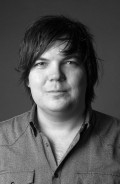
Andrew Merrie, PhD, SUSTAINABILITY SCIENCE
2011-2016 Junior Research Fellow (Stockholm)
Communications Officer – GRAID, Stockholm Resilience Centre
Andrew completed his PhD thesis titled Global Ocean Futures – Governance of marine fisheries in the Anthropocene. The thesis provides an analysis of how an adaptive governance approach can be applied to address existing and emerging challenges in global governance with a focus on marine, wild-capture fisheries. Andrew is now working on science communications and science-policy work at the Stockholm Resilience Centre. His work is in support of the Guidance For Resilience in the Anthropocene – Investments for Development program.
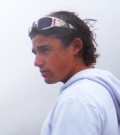
Gabriel Reygondeau, PhD, Macroecology & Oceanography
UBC
2015-2017 Research Fellow (UBC)
Gabriel Reygondeau’s research focuses on the thematic of “The effects of climate changes and anthropogenic activities on the biogeography of the global ocean”. His current research interests can be summarized in 3 topics: (1) relations between marine organisms (from plankton to top predator), biodiversity and environmental conditions at the global scale; (2) Identification and monitoring of global marine ecosystems and (3) Evaluation of the impact of anthropogenic pressures on the global marine ecosystems.

Laurens Geffert, PhD, Geography
2012-2015 Junior Research Fellow (Cambridge/WCMC)
Laurens Geffert conducted his PhD research at the University of Cambridge in cooperation with UNEP-WCMC. Before his PhD he studied Biology, Geography, Ecology and Conservation at the University of Bonn, Germany. His PhD research focussed on “Improving range map methodologies for marine taxa”. He tested approaches to account for sampling bias in species occurrence records and developed a method to integrate spatially explicit expert knowledge into quantitative machine learning models to more accurately map commercially important marine fish species. Laurens now works as a Data Scientist and uses psychometric data to better understand human behaviour.

Lisa Dellmuth, PhD, Political Science
2014-2016 Senior Research Fellow (Stockholm)
Senior Lecturer, Stockholm University
Lisa Dellmuth (F) is a tenured Senior Lecturer in International Relations at Stockholm University. Her research interests include global environmental politics and the legitimacy and effectiveness of international governmental organizations such as the United Nations and its bodies and agencies. Lisa has received several awards for her research and has been a principal and co-investigator for several external grants, funded by donors such as the EU and the Swedish Research Council. Her research is published in leading international journals such as the British Journal of Political Science, Review of International Organizations, and European Union Politics.
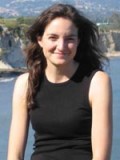
Maria de Oca, Master, Marine Biodiveristy & Conservation
Duke
2014-2017 Research Fellow (Duke)
Maria de Oca is a James B. Duke Fellow working on her PhD at Duke University. At the Marine Geospatial Ecology Lab she is studying the bottom-up regulation of fisheries production.

Mathieu Colléter, PhD, Zoology
UBC
2015-2016 Junior Research Fellow (UBC)
Mathieu Colléter is a fisheries scientist whose research focuses on ecosystem modelling and trophic networks. He is currently a Master’s candidate in Advanced Global Studies, specialized in Environmental Policy, at the Parisian School of International Affairs (SciencesPo Paris). At Nereus, he worked on the production of biomass estimates for the 180,000 ½ degree Sea Around Us cells covering all oceans, from 1950 to 2010, using ecosystem modelling (EcoTroph) and the Sea Around Us’ new spatialized catches. This will be used to model future changes in global biomass and fisheries catch under climate change scenarios.

Phil Underwood, PhD, Theoretical Ecology
Cambridge/WCMC
2014-2018 Research Fellow (Cambridge/WCMC)
Phil Underwood works with the Madingley model to validate its use as a policy informing tool in relation to fisheries and food security. As a member of the Nereus Program, Underwood will be working to better understand the relationship between oceanic ecosystems and human societies. To this end he will improve the ecological realism of the Madingley Model in order to generate future projections of fisheries in a global context.

Rebecca Asch, PhD, Biological Oceanography
2013-2016 Senior Research Fellow (Princeton)
Assistant Professor of Fisheries Biology, East Carolina University
Rebecca Asch is a fisheries oceanographer whose research focuses on interactions between fisheries, plankton ecology, and climate. Her research combines fieldwork, time series analysis, and ecosystem modeling, spanning local-to-global and subseasonal-to-centennial scales. Rebecca’s research primarily investigates whether climate change could lead to increased seasonal mismatches between trophic levels. Many fishes spawn synchronously with plankton blooms to maximize food availability for their offspring. Seasonal timing of both fish reproduction and plankton blooms is changing under global warming, but these shifts do not always occur at the same rate. Mismatches between trophic levels can lead to lower recruitment and decreased fisheries productivity.
Research Associates (Honorary)

Juan José Alava, PhD, Marine Ecotoxicology/Ocean Pollution
UBC
Juan José Alava is a marine eco-toxicologist and conservation biologist, working as a Postdoctoral Research Fellow at the Institute for the Oceans and Fisheries (IOF), University of British Columbia (UBC). His research interests are broad and include environmental toxicology and marine ecotoxicology; food web-bioaccumulation modelling of pollutants and climate change; marine mammals; sea turtles; seabirds; fisheries science and management, climate change, environmental impact and risk assessments, conservation biology; tropical biodiversity and parasitology.

Marjo Vierros, PHD, MARINE BIOLOGY
UBC
Marjo Vierros is the director of Coastal Policy and Humanities Research. She is also a senior associate at the Global Ocean Forum, a past visiting fellow at the Liu Institute for Global Issues at the University of British Columbia, and formerly an Adjunct Senior Fellow at the United Nations University Institute for the Advanced Study of Sustainability (UNU-IAS) and its Traditional Knowledge Initiative. She has extensive experience in marine policy, tropical marine ecology and coastal management in the Caribbean, Central America, Bermuda and the Pacific.

Suzanne von der Porten, PhD, Environment and Resource Studies
UBC
Dr. Suzanne von der Porten is visiting faculty at Quest University, Canada, and an independent consultant with Indigenous governance and environmental governance clientele. Her postdoctoral research at Simon Fraser University focused on the changing roles of Indigenous coastal nations, governments, and industry in relation to marine conservation. Suzanne holds a Ph.D. in Environment and Resource Studies from the University of Waterloo, and a B.Sc. and an MBA from the University of Victoria.
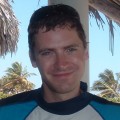
Derek Tittensor, PhD, Biology
UNEP-WCMC
Derek Tittensor is a Senior Marine Biodiversity Scientist at the United Nations Environment Programme World Conservation Monitoring Centre (UNEP-WCMC) in Cambridge, and Adjunct Professor in the Biology Department at Dalhousie University in Halifax, Nova Scotia. His research examines human impacts on biodiversity in the oceans, large-scale modelling of ecosystems from first principles, and the distribution and biogeography of marine species. His work is a combination of theoretical modelling, statistical analysis, field observation, and experiments.
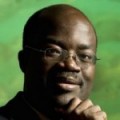
Rashid Sumaila, PhD, Economics
UBC
Dr. Ussif Rashid Sumaila is Professor and Director of the Fisheries Economics Research Unit at the UBC Institute for the Oceans and Fisheries. He specializes in bioeconomics, marine ecosystem valuation and the analysis of global issues such as fisheries subsidies, IUU (illegal, unreported and unregulated) fishing and the economics of high and deep seas fisheries.

Louisa Wood, PhD, Geography
UNEP-WCMC
Louisa Wood is a Head of Development at the UNEP-WCMC. Wood has a Ph.D. in Geography from the University of British Columbia and 9 years of experience working on a variety of marine conservation, fisheries, and marine protected area (MPA) projects, spanning a range of issues including: marine ecology; illegal, unregulated and unreported (IUU) fisheries; capacity building; MPA monitoring, planning, and compliance; and spatial decision support.

Colette Wabnitz, PhD, Geography
UBC
Colette Wabnitz is interested in understanding the functioning of ecosystems, how they respond to human pressures and natural forcing, and the design of measures for the sustainable use of their resources and the long term conservation of their services. Her current research focuses on developing global and regional scenarios, models and databases for oceans assessment under global change. Colette obtained her PhD from UBC, was a PostDoc Fellow at UBC and the Pacific Island Fisheries Science Centre in Hawai‛i, then spent 4 years as a Fisheries Scientist for the Secretariat of the Pacific Community in New Caledonia.
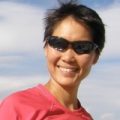
Lydia Teh, PhD, Resource Management and Environmental Studies
UBC
Lydia’s research examines the social, economic, and ecological dynamics of marine fisheries, with a special focus on small-scale fisheries. Her interdisciplinary research cuts across fields from human ecology to biodiversity conservation, and has taken her to work with fishing communities in Sabah, Malaysia and Fiji. Lydia applies empirical methods and modelling approaches in her research, and has published in the topics of fisher behaviour, marine protected area design, coral reef trade, ecotourism, and climate change adaptation.




